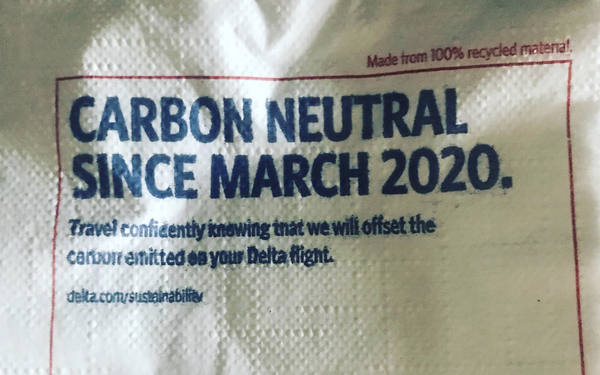sustainability
FTC Reviews Sustainability Claims
- by Todd Wasserman , January 12, 2023

Carbon neutrality is such a vague term that marketers have felt free to bandy it about.
For instance, Delta Airlines recently handed out napkins to passengers that said, “Carbon neutral since March 2020," and directed users to a website (delta.com/sustainability) where they could learn more.
The Federal Trade Commission currently doesn’t offer input on “carbon neutral” and 18 other terms, including “carbon negative” and “net zero,” but that may soon change.
The FTC is now seeking comment on whether it should provide input on such terms.
“For the average consumer, it’s impossible to verify these claims,” FTC Chair Lina Khan said in an announcement in December, when the agency launched its review. “People who want to buy green products generally have to trust what it says on the box.”
advertisement
advertisement
The FTC’s Green Guides say companies should be specific with environmental claims like “green” and “eco friendly,” and provide evidence for what makes a product environmentally beneficial.
Occasionally, the FTC sues companies for violating this principle. In one case, Kohl’s and Walmart reached settlements of $2.5 million and $3 million, respectively, for claiming that dozens of rayon textile products were made out of bamboo.
The FTC’s move toward more regulation of green claims come as such claims are on the rise. Sales of consumer packaged goods in North America that carried labels advertising sustainability jumped to $268.9 billion in 2022 from $248.9 billion in 2021, according to NeilsenIQ.
Currently, 45% of Americans want to be seen as eco-friendly, according to a 2022 Eco Pulse study from Shelton Group.
Judging by the FTC’s action, the agency wants to play a bigger role in assessing which company’s claims are based on truth, and filter out those whose aren’t.




